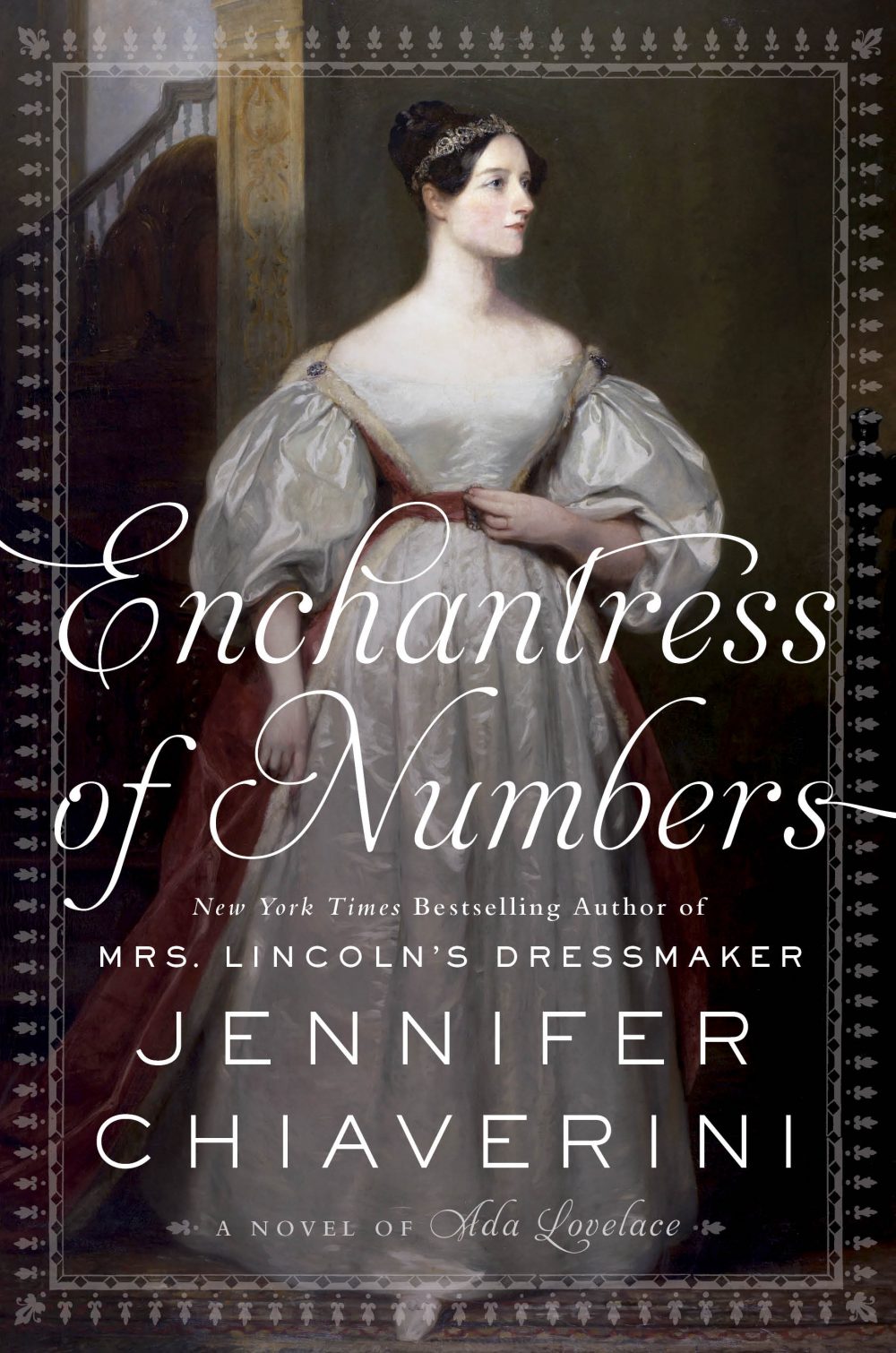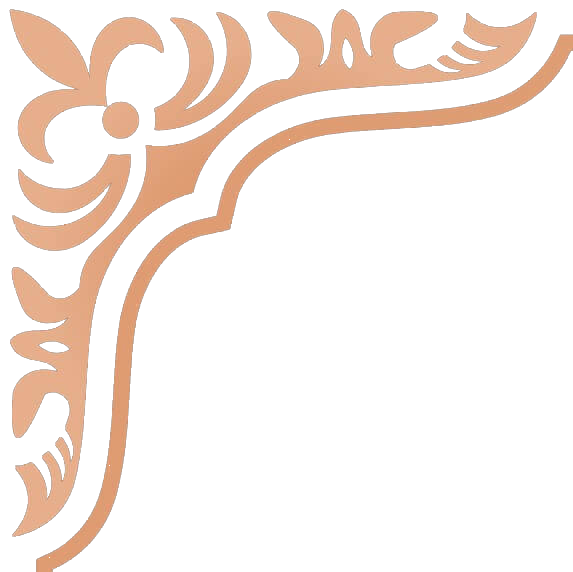
Q. Ada Lovelace is likely a new historical figure for many of your readers. How did you first come across her story and what drew you to write about her life?
A. I usually find the idea for a new novel when I come across an extraordinary historical figure while researching and writing about someone else, but I owe the inspiration for Enchantress of Numbers to my husband. About two years ago, I was struggling with a manuscript whose early promise wasn’t going anywhere. One day while I was sitting at my computer staring grimly at my notes, my husband told me about a pair of historical figures that he had read about on the Lego Ideas website: Charles Babbage, the inventor of two early “calculating engines,” the Difference Engine and the Analytical Engine; and Ada Lovelace, the mathematician and writer who understood even better than their creator did what these early computers were capable of, how they could someday transform commerce, navigation, science—essentially, the world. I was astonished to learn that in writing an algorithm for the Analytical Engine to calculate Bernoulli numbers, Ada had essentially written the first computer program many decades before the first computer was ever built.
Inspiration struck. I set aside the other project and immediately began researching the life of Ada Byron King, Countess of Lovelace.
You can probably imagine how pleased my husband was! He had only meant to share a story he knew would appeal to me given my fascination for remarkable, often unheralded women in history, but in doing so, he had also solved the problem that had been making me so worried and stressed. This just goes to show that authors really can find ideas for novels just about anywhere.
Q. What is the significance of the title?
A. “Enchantress of Numbers” is a title Charles Babbage bestowed upon Ada Lovelace in a letter he wrote to her on September 9, 1843. They had been writing back and forth, trying to settle upon an ideal time for him to visit her family at Ashley Combe, their estate in Somerset. Babbage wrote that he was so busy with work that if he waited until he had leisure time, he would never make the trip. He resolved to come at once, packing only a few papers, “enough to enable me to forget this world and all its troubles and if possible its multitudinous Charlatans—everything, in short, but the Enchantress of Numbers.” The affection and admiration he expressed were significant, because he and Ada had been estranged for several weeks, and this letter indicates that they were reconciling. And yet, unable to leave well enough alone, Babbage had to conclude the letter with, “Farewell my dear and much admired Interpreter.” As cordial as this might seem at first glance, it once again emphasized the hierarchy of their roles as he perceived them: He was the genius inventor, she merely the lady who wrote about him. Unfortunately, then and now, it’s all too common for a woman to be built up with praise and then immediately pushed back down to a less threatening level, her accomplishments diminished.
Q. You always do in-depth research about the real life history of your protagonists before putting pen to paper. What kind of research did you do for this book?
A. Whenever I write historical fiction, I begin my research at the Wisconsin Historical Society library in my hometown of Madison. It’s a wonderful resource, an archive of marvelous depth and scope tended by knowledgeable, curious, enthusiastic librarians and scholars. In my research for Enchantress of Numbers, I also consulted many excellent online resources, including the British Newspaper Archive, Genealogy Bank, Ancestry, The Life and Times of Lord Byron (lordbyron.org) and websites for Newstead Abbey and the Computer History Museum. Whenever I can, I also like to visit preserved historical sites that relate to the people and events I include in my novels in order to enhance my understanding of a place and its people.
Q. Ada’s mother, Lady Annabella Byron, had very specific theories on the upbringing of Ada—her practices could easily be viewed as unkind and even tyrannical. Do you think readers should be sympathetic to her character?
A. Annabella was an intelligent and complicated woman. She was admired in society for her good works and virtue, but when it came to her own daughter, she often acted contrary to the principles she most staunchly advocated. She was generous to friends and family who would have suffered without her financial support, but she made Ada get by on a very small allowance. She built progressive schools for the working poor with a curriculum that emphasized “cheerfulness,” but she entrusted Ada’s early education to a series of nurses and tutors who took a punitive, even abusive approach to her instruction. She enjoyed a large circle of friends and acquaintances, yet until Ada came out in London society, Annabella kept her quite isolated, so that even her very small circle of childhood friends would be more accurately described as pen-pals. Annabella believed that she was doing what she thought was right for her brilliant child, but I find her style of parenting appallingly cold and distant. It’s little wonder that when Ada had children of her own, she felt uncertain and unprepared for motherhood. She had spent so much time alone with only her aged grandparents or household staff for company, missing her mother, longing for her, and yet resenting her abandonment. As for whether readers should be sympathetic to Annabella… I hope they won’t emulate her as a parent, but I think they should still try to understand her, even when they strongly disagree with her. Whatever Annabella did or neglected to do as a mother, it was never with the intention of harming Ada, although that was often the consequence.
Q. Women around the world look to Ada Lovelace as a role model for women in STEM today—especially given the movement to encourage more women to pursue jobs in math and science. What do you think young women can learn from Ada’s story and why do you think it’s important to keep her legacy alive?
A. When we remember and celebrate Ada’s contributions to computer science, we contradict all of the negative voices that insist STEM fields aren’t for girls. We also give Ada long overdue recognition for her achievements, which far too many people have wrongly attributed to Babbage—yet another example in a very long list of occasions where men have taken credit for women’s achievements and discoveries. Young women today have many more opportunities to pursue careers in STEM fields than Ada Lovelace did, but obstacles remain. I’d encourage young women to study whatever it is that fascinates them, whatever provokes their curiosity, and never to be dissuaded by other people’s negativity. Look for allies that will help you pursue your goals—perhaps your parents, teachers, or women already thriving in the career you’d love to have. Social media has made it easier than ever to get in touch with experts who are willing and eager to guide young women into STEM careers. Sometimes all you need to do is ask.
Q. Are there any other characters in Enchantress of Numbers—male or female—that you were especially drawn to?
A. Lord Byron—the renowned Romantic poet infamously described by a former lover as “mad, bad, and dangerous to know”—is a wonderfully compelling and charismatic figure. Even though Ada was only an infant when she saw him for the last time, and she knew him only through his poetry and other people’s stories, his presence infuses the entire novel as Ada struggles to reconcile the two distinct parts of her heritage—her mother’s logic and reason and her father’s brilliant passion.
Mary Somerville, the brilliant mathematician and astronomer who became Ada’s mentor, is a fascinating woman in her own right, and the obstacles she confronted in her pursuit of an education and a scientific career were even more daunting than those Ada faced. I’m strongly tempted to explore her life more deeply in a future novel.
Q. Your mother was a math teacher credited with bringing the first computers into her school. Do you think this personal connection encouraged you to write about powerful women in this field?
A. I’m certain it did. My mother excelled in math and science in school, but although her parents assumed her older brother would go to college, they were surprised when she told them she wanted to also. Most of her friends at the girls’ Catholic school she attended went straight from school into marriage. When my mother entered college, she was informed that there were two career paths open to her: nursing or teaching. She chose teaching, but I have to wonder what path her life would have taken if all the choices that were available to me a generation later had been open to her then.
My mother is retired now, but she was an extraordinary gifted and caring teacher—and I know this for a fact because for few years I attended the school where she taught, and she was my teacher for Algebra I and Computer Programming. Back in the early eighties, she had the foresight to see how important these new microcomputers were going to be in the years to come, and she wanted her students to be comfortable with this emerging technology, to be able to use computers in college and in the workplace, and perhaps even go on to become programmers or computer engineers. The school administrators were skeptical at first, but she persisted. Before long the school established a small computer lab where my mother taught BASIC programming and computer literacy. I know her students benefited tremendously because I was one of them.
While I didn’t go on to pursue math or computing, my mother has made a profound impact on my career as a writer. From the time I was a baby, my mother made a special effort to read aloud to me, because I have an older brother and younger sister and she wanted to make sure that I didn’t get lost in the middle. Reading aloud became our special time together, and when I was old enough to read on my own, my mother would take me to the public library every Saturday so I could check out stacks of books I would devour in a week. She was always willing to listen to me describe for her in painstaking detail whatever book I was currently reading, which helped me develop my awareness of what made a story work. From the moment I first confided that I wanted to be a writer someday, she encouraged me to pursue my dream—and she still does.

